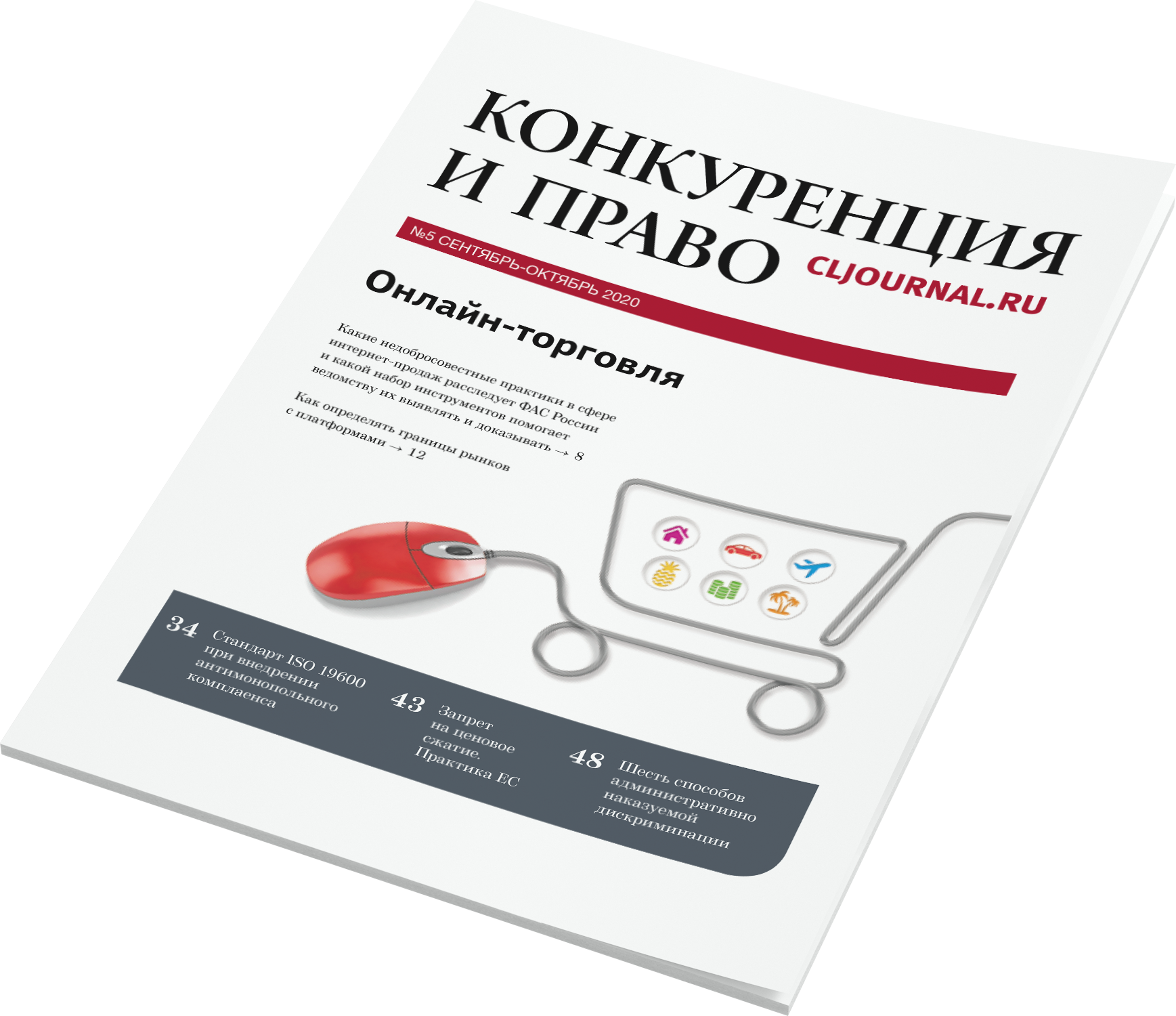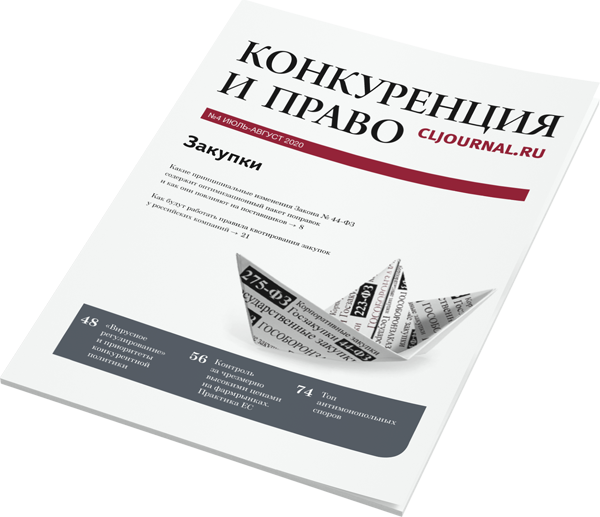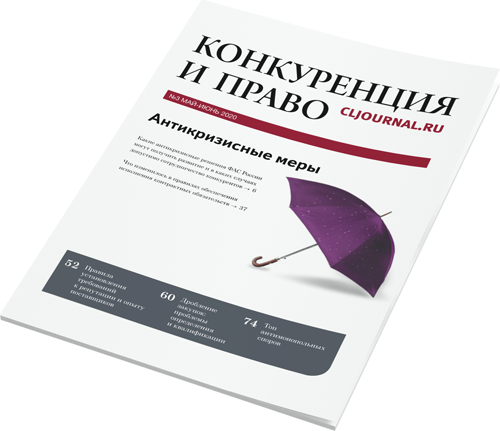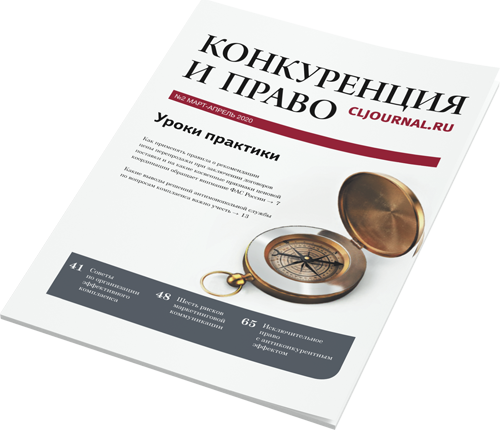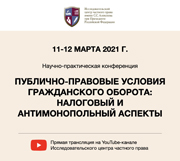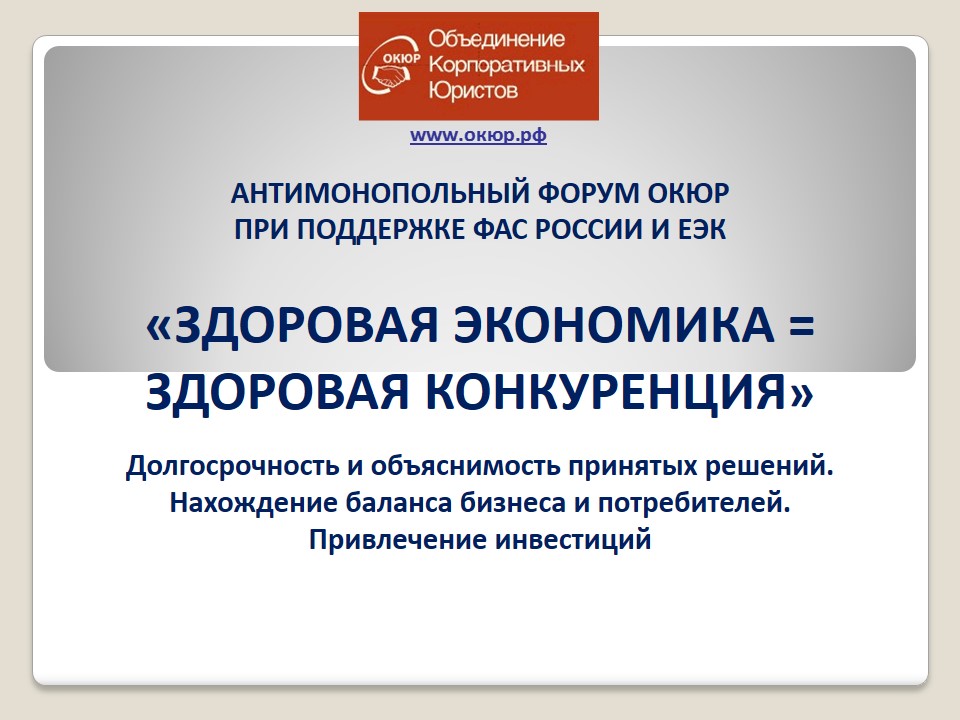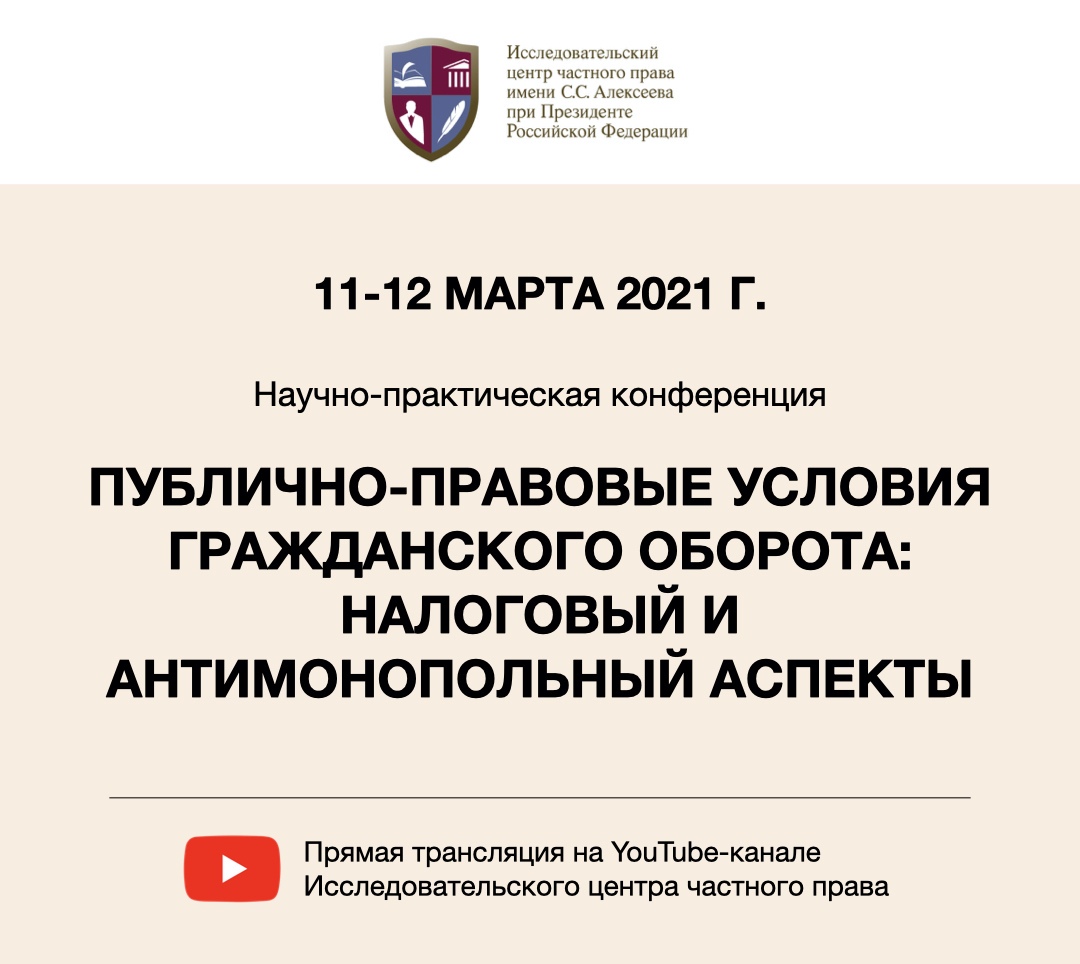|
||||||
 Elena Sokolovskaya, Chief Expert of Competition and Law journal
By incorporating a non-competition clause into an agreement, the parties to it usually seek to prevent any of them from enjoying an advantage. However, this tool, which is essentially aimed at safeguarding competition, may be used unfairly, for example, with a view to forming a cartel. In the Russian Federation, the legislative regulation of non-competition clauses still lacks clarity; therefore, it would be wise to address the experience of the European Union and, before using such tool, to request the relevant assessment from the Russian Federal Antimonopoly Service.
A non-competition clause, informally abbreviated to ‘non-compete’ clause, represents a voluntary refusal of the participants of the transaction to compete with each other in a specific commodities market. Non-competition clauses may be encountered both in the form of a separate agreement or as a part of an agreement. The purpose of this tool is to protect investments and secure a return on them. The practical meaning of a non-competition clause relies on the seller’s advantageous position after a transaction: the seller knows the ins and outs of the market and the drawbacks of the item to be sold, maintains its industry-specific ties and client pool, and can capitalise on these advantages when opening a similar new business. The antimonopoly assessment of non-competition clauses depends on the character of the undertakings that entered into them, and on the purposes for which such non-competition agreement was concluded. In the European Union, such assessment is carried out based on the general provisions of article 101 (3) of the Treaty on the Functioning of the European Union. These provisions are specified by the following regulations:
Russian antimonopoly regulation is deficient in this regard; non-competition clauses are assessed by the Federal Antimonopoly Service when it considers specific agreements and transactions aimed at an economic concentration. Three instances of using this tool may be singled out. 1. Horizontal agreements between competitors. According to the general rule, the Federal Antimonopoly Service bans non-competition clauses between competitors, classifying them as cartels by virtue of article 11(1) of Federal Law No. 135-FZ dated 26 July 2006 “On the protection of competition” (the “Law on Protecting Competition”, or the “Law”). However, if a non-competition clause is incorporated into a joint-venture agreement, it will be excluded from the ban provided for by the above article if such agreement was entered into with the prior consent of the antimonopoly authority (in accordance with article 11(10)). If the aggregate value of the assets or the revenue exceeds the thresholds set out in article 27(1)(8) of the Law, obtaining the regulator's prior consent becomes mandatory (see, for example, Resolution No. AK/76988/17 of the Federal Antimonopoly Service dated 7 November 2017). Apart from the provisions of article 13 of the Law on Protecting Competition, when joint-venture agreements are analysed, the Clarifications of the Federal Antimonopoly Service dated 8 August 2013 are applied. These establish individual criteria for the assessment of whether non-competition clauses are permissible. These criteria include: 1) their conforming to the objectives of the joint venture; 2) this tool covering only the relevant and adjacent markets; 3) the duration of non-competition clauses being determined by the return on investments; 4) there is no information exchange between the participants aimed at maintaining a cartel or concerted actions. The Clarifications feature a non-exhaustive list of examples of non-competition clauses: clauses refusing to produce similar goods, refusing to be active in a certain territory, refusing to purchase shares (stock) in competing companies, etc. 2. Vertical agreements between undertakings. When assessing the use of non-competition conditions in vertical agreements, it is essential, first and foremost, to establish that there is no competition between the parties to a transaction. If this is the case, such conditions are treated in accordance with article 11(2) of the Law “On the protection of competition” unless proved otherwise. An example of a vertical non-competition clause is a ban on distributors producing or selling goods similar to those competitors. Such conditions are assessed against the market share of the participants to the agreement in question. In particular, if the share of each participant:
3. Transactions aimed at an economic concentration. Russian antimonopoly law does not contain any specific rules for the assessment of non-competition clauses making part of transactions aimed at an economic concentration. Such cases are only subject to the provisions of article 13(1) of the Law “On the protection of competition”, which help to prove that non-competition clauses are permissible, including those involved in the above transactions. In our opinion, it would be reasonable to justify non-competition clauses by their compliance not only with article 13(1) of the Law but also, by analogy, with the criteria set out in the Clarifications of the Federal Antimonopoly Service, since an approach similar to the methodology enshrined in that document is used in the EU in relation to transactions aimed at an economic concentration. Taking into account the insufficient clarity in the regulation of non-competition clauses in Russian antimonopoly law, we recommend applying to the Federal Antimonopoly Service to have such clause classified as permissible before including it in an agreement. For example, the shareholders’ agreement of the metallurgical holding Evraz, which contained a non-competition clause, was agreed with the Federal Antimonopoly Service. 14 апреля 2020 г.
|
|


